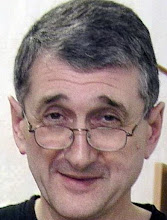The story is about a visit (19 – 23 Feb) of an IT-related delegation the USA to Moscow and Novosibirsk.
The delegation headed by Jared Cohen of Hillary Clinton’s policy-planning staff included John Donahoe, president and CEO of eBay; Jack Dorsey, founder of Twitter; Esther Dyson, currently of EDventure; Shervin Pishevar, founder of Social Gaming Network; Padmasree Warrior, CTO of Cisco Systems and some others. Well, among the others there was Ashton Kutcher (!). In Moscow, the delegation has had contacts at the level of the Russian President Administration and IT-related ministries. In Novosibirsk (mostly in Academgorodok – a research and techno campus) they visited some high-tech companies and an emerging Techno-park, and met technology experts, students, and administrations.
Couple of reasons inspired me to write about this visit:
- My software development company LEDAS (basic CAD technologies) and CAD/PLM web portal isicad are operating in the above mentioned Academgorodok, you can read about this for example in Ralph Grabowski’s book; (unfortunately I could not accept an invitation to the yesterday Round Table of the USA delegation with Novosibirsk IT experts but I’ve got a lot of internal notifications and infos),
- I met Esther Dyson in late Soviet times when she was already very active in contacting with Soviet programmers; in 1990, the first thing I saw in her NY office was a bottle of Russian brandy – although (likely forever) unopened,
- There is a hypothetical specific relationship between this delegation and a recent scandal in the Russian CAD market (see my special post AutoCAD for $50: Scandalous Suspension of torrents.ru),
- The Russian media closely connects the visit with the current Russian innovation wave.
While scanning some USA and Russian publications, I tried to formulate my own feeling about what is all this about.
From the USA part, it looks more or less clear from at least:
- An official quote saying that the visit is a “… part of a State Department-sponsored initiative to share U.S. expertise on such daunting problems as corruption and human trafficking”,
- An interview with John Donahoe who confirmed his clear business interest in Russia: very soon launching a Russian language eBay service in the immediate future, negotiating on local partnerships on PayPal and other projects.
From the part of Russia, all reasonable high-tech business investments and partnerships are obviously useful and welcome. On the other hand, maybe there is also a strong political aspect, both internal and external. In Russian society there is a visibly growing understanding that basing national economy mainly on oil and gas is a dead end. The government seems to recognize that Putin’s slogan of stability which was politically very advantageous (and maybe initially useful) is now becoming not efficient and not popular – if not politically dangerous. Recently, President Medvedev announced a national slogan of modernization (or innovation) which sounds attractive but not very constructive. The government feels that some concrete projects should be launched, the projects that can definitely be associated (internally and externally) with the policy of innovations.
One of such innovation projects was announced by the Russian President Administration a couple weeks ago: to invest billions into building a Russian Silicon Valley near Moscow. Some aspects of the plan look at least not obviously natural: first, the government is strongly asking big Russian businesses to invest their money; second, the government itself is going to promptly (in 1-2 months) organize a selection of projects that will be invited to the new Silicon Valley; third, the government is going to broadly invite foreign specialists and managers to help bootstrapping this tech-tech zone (which maybe will have a somewhat restricted access). What is interesting, there are governmental explanations that such big high tech projects are worldwide usually organized top-down; in particular after the Moscow meetings with the USA high-tech delegation, there were official statements saying that the leading USA experts confirmed that such top-down scheme is reasonable and probably traditional.
On the other hand, many people in Russia believe that innovations should naturally arise as private initiatives in an appropriate social, economic and legal setting. In Russia there are already many interesting innovative projects (two of them that I know quite well were shown to the USA delegation in Academgorodok); and such initiatives would mushroom in a favorable atmosphere and benefit from it, and of course would be open to investment support.
So far, as Jared Cohen mentioned in his twitter, 1000 engineers from Novosibirsk are working for Microsoft, other 40,000 working in Silicon Valley, CA.
Above all, the Delegation got a lot of Siberian impressions, some of them easily extracted from twitter: snowing, frost, vodka, … , scientific broadness of the Academy, so many very clever guys, candid communication with the University students…. In particular, one can find out that it was in Siberia where John Donahoe, CEO of eBay, decided to join Twitter – however with a specific name @TallBoy6.
One can read official news about this visit at the US Government web page – marked as “diplomacy in action” with a photo of Ashton Kutcher speaking to Siberian schoolchildren (however not seen at the pic). A much more informative English article is U.S. Government, Geek Luminaries: To Russia With Tech .
.
2/21/2010
John Donahoe, CEO of eBay, joined Twitter in Siberia
Subscribe to:
Post Comments (Atom)

No comments:
Post a Comment